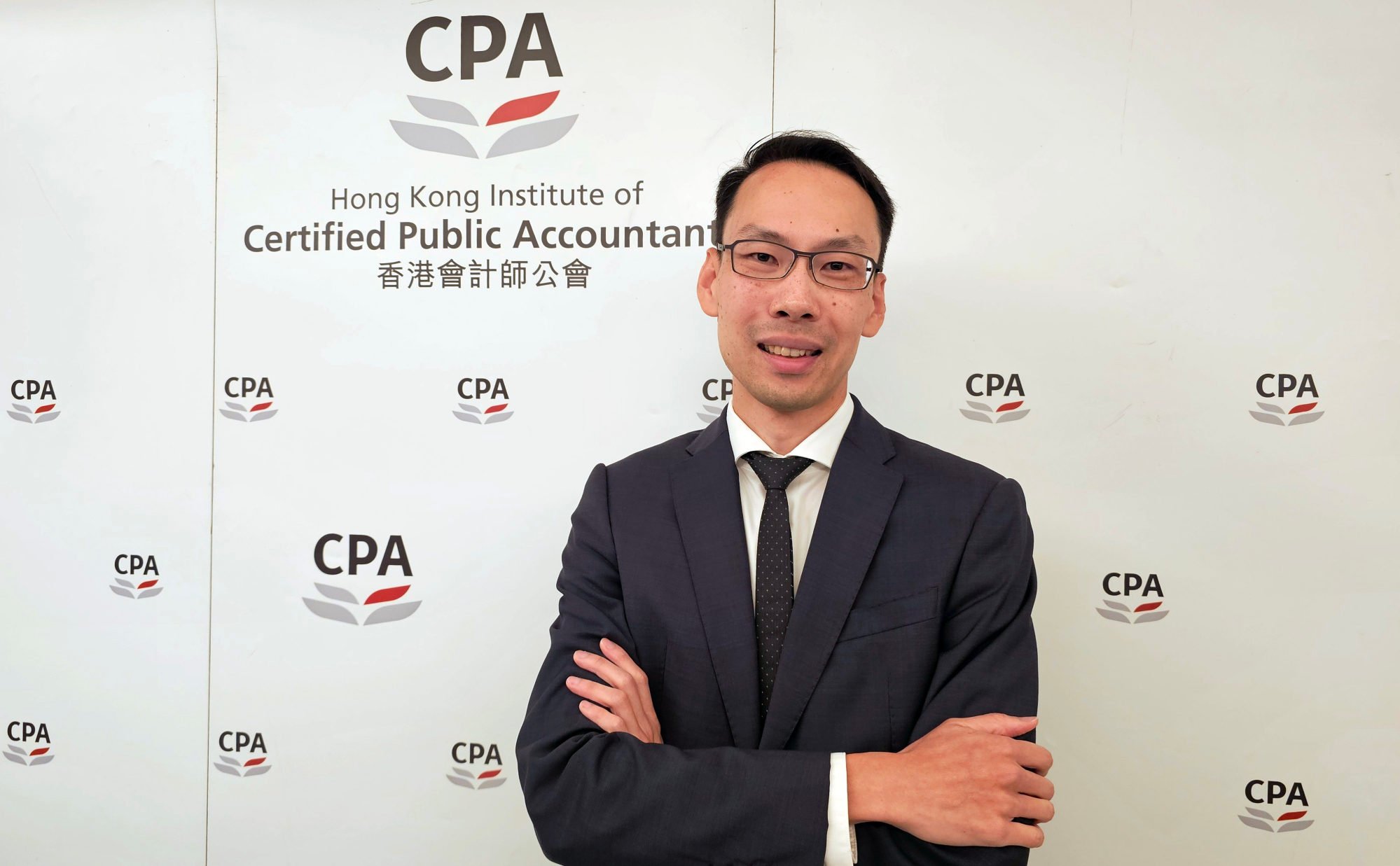
Hong Kong accounting industry grows as ESG, Greater Bay Area opportunities draw young professionals: HKICPA president
- HKICPA, the industry body representing the city’s 47,000 qualified accountants, has grown by 10 per cent since 2018, new president says
- ESG reporting and the Greater Bay Area offer opportunities for young accountants, and the IPO market is set to recover, says Roy Leung
Hong Kong’s accountancy industry has attracted more young professionals in recent years despite a downturn in new share listings, according to the new head of an industry body.
The Hong Kong Institute of Certified Public Accountants (HKICPA), which represents the city’s 47,000 qualified accountants, has seen its membership rise by 10 per cent since 2018.
This is despite a drought of initial public offerings (IPOs) in recent years, because young people are attracted by opportunities in environmental, social, and governance (ESG) reporting, corporate governance consulting and the Greater Bay Area, according to newly appointed HKICPA president Roy Leung Sze-kit.
“Many people think accountants are only doing audits for IPOs or the financial statements for existing listed companies,” Leung said on Tuesday in his first media briefing since being elected in December. “In fact, many of them are offering reporting and consulting services in taxation, ESG reporting and corporate governance.”

Leung, who joined the industry in 1999 and is now a partner with KPMG, said the industry has grown over his career, with the institute’s membership almost tripling from about 16,000 in 1999.
“The figures show the continuous growth of Hong Kong’s accounting profession, even with the economic and market ups and downs during the period,” he said.
Leung is optimistic about the industry’s future development for a number of reasons.
First, bourse operator Hong Kong Exchanges and Clearing published conclusions from a consultation on the enhancement of climate-related disclosures under its ESG framework last Friday, which will increase demand for ESG-savvy accountants, he said.
In addition, he believes the IPO market will bounce back soon with the support of mainland policies. The China Securities Regulatory Commission (CSRC) on Friday announced it would facilitate listings in Hong Kong by the mainland’s industry-leading companies as well as expand the Stock Connect cross-border investment scheme.
“The CSRC’s measures will add more capital flow to the stock market in Hong Kong, which will encourage more mainland companies to list here,” Leung said.
Ranked as the world’s largest IPO market seven times between 2009 and 2019, the city fell to 10th place in the first quarter after just 12 IPOs that raised US$604.4 million, a decrease of 29 per cent year on year.
“Despite the low number of IPOs in recent years, there are still a lot of companies preparing to apply for a listing in Hong Kong,” Leung said.
Meanwhile, the development of the Greater Bay Area – the region that combines Hong Kong, Macau and nine mainland cities into what Beijing intends to be one economic powerhouse – is another growth engine for the local accountancy sector.
“There are many technology companies and innovative companies in the Greater Bay Area that want to tap funds from a listing in Hong Kong,” Leung said.
The HKICPA will host a summit in Hong Kong in October. Titled the Cross-straits, Hong Kong and Macau Accounting Profession Conference, the event will gather hundreds of accountants from mainland China, Taiwan, Macau and Hong Kong to exchange ideas.
“As the border has reopened around the world, we want to show the world that Hong Kong is back to normal,” Leung said. “It is also a good opportunity for accounting professionals in Hong Kong, Macau, Taiwan and mainland China to get together to exchange ideas.”

